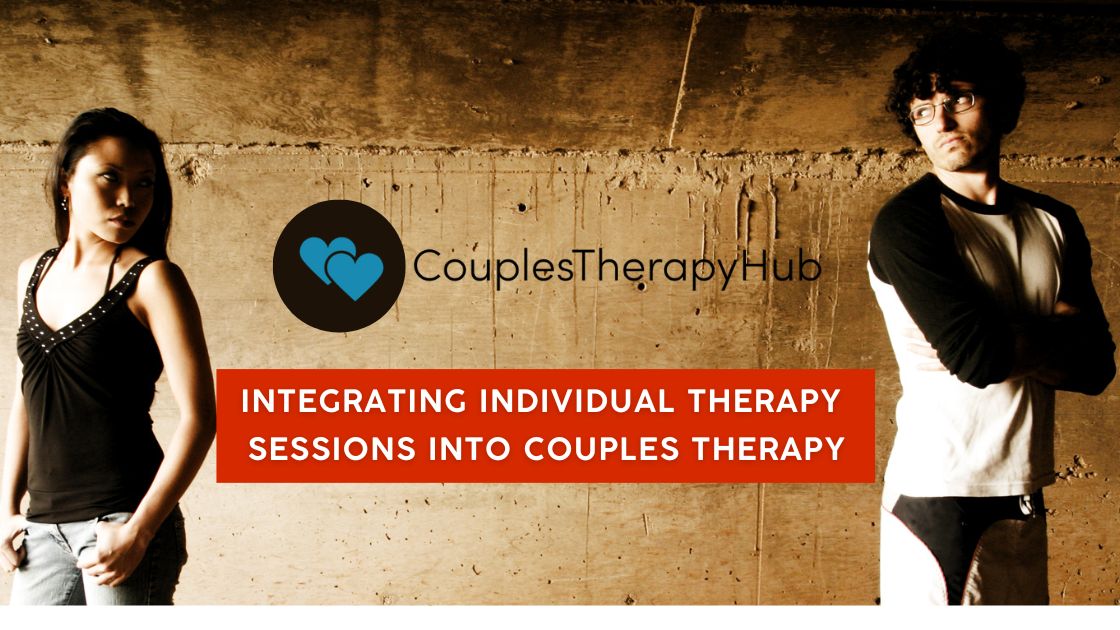
It is a common perception that marriage therapists should not offer personal treatment to either couple member. If one or both members need discrete assistance, the therapist should refer them to a different counselor. The underlying assumption is that conjoined therapies compromise the neutral position of professionals and implies favoritism toward one partner. However, several studies disavow this idea and affirm the usefulness of combined sessions. This article will examine the ramifications of combined couples therapy in detail.
Same therapist for couples and individual therapy
A key benefit of combined treatment is avoiding the problems of collaboration with a different consultant. Even if the practitioners know each other, have comparable therapeutic approaches, respect one another, and manage time for periodic updates, concurrent treatment might prove challenging. It could divide and destroy the effort as it confuses the patients.
Why should your therapist be your couples therapist?
Therapists have different theoretical perspectives, styles, and temperaments. Although these differences prove advantageous, their combination brings inconsistency to the remedial process. It could puzzle the family members about which strategies will be effective in a particular situation. For instance, one professional might prefer examining dysfunctional communication and behavior patterns to outline the best solution for twosomes, while the other might use a problem-solving approach. Likewise, one may adopt a firm stance, while the other may recommend a give-and-take strategy. Eventually, this would produce confusion and frustration. Seeing one consultant prevents the occurrence of these situations.
Having the same counselor also eliminates the need to reiterate history, current situation, and other pertinent information. It decreases the number of sessions and saves time and energy, thus reducing the cost of therapeutic support. If there are discrepancies among family members, the same psychotherapist can identify them more quickly and precisely.
Sometimes, you must digest uncomfortable realities to deepen your relationship. You might feel uncomfortable addressing sensitive matters with your significant other. Combining private and group support assists in the development of successful communication strategies and styles. It aids you in finding the appropriate words to share with your spouse about what is happening in your world. Personalized check-ins guarantee that each partner’s needs are met in the future, in addition to establishing negotiating techniques for contentious situations. These check-ins simultaneously offer coping methods tailored to meet personalized needs and assist both partners in achieving goals essential to their development. Personal meetings also enable the client and practitioner to create a solid, trustworthy rapport, which improves the diagnostic process and remedial efficacy.
Is it ethical for a therapist to see a couple separately?
If you and your spouse are entering marital counseling, there may be times when you both will prefer to see the counselor individually. Most therapists have set rules and regulations for such circumstances to safeguard the confidentiality and privacy of both members and ensure the therapeutic growth of their relationship. However, according to a report published by the Eastern Group Therapy Society, one should ensure that their partner has no concerns over it. In other words, if both partners consent to each other, they can seek individualized and group assistance from the same practitioner. Since the clients themselves make a choice, it is ethical for a personal counselor to serve as a couple or family expert.

When is couple therapy preferable to individual therapy?
Psychoanalysis for one partner might prove helpful for some individuals before engaging in marriage psychotherapy. Sometimes, mental health issues, like anxiety, depression, and mood disorder, are the reason behind the collapse of a marriage. So, it is crucial to address these issues before seeking group psychotherapy. Sometimes, partners are aware of their internal turmoil. Thus, loving birds should benefit from private remedial sessions before they seek marital assistance. In particular cases, one spouse may recommend psychotherapy for the other.
If partners are unsure about or feel apprehensive about personal therapies, they might start couples’ counseling, and the expert might guide them on whether they need treatment individually or not. However, if both partners are mentally healthy, they might opt not to seek personal treatment.
Can individual therapy help a marriage?
In addition to couples’ counseling, private therapies help you recognize your ideas, emotions, and behaviors. It aids you in developing new skill sets and conflict-resolution techniques. Regardless of the state of your relationship, you are an individual with unique experiences. Conjoined meetings will facilitate your progress as a pair, and private consultation will aid you in cultivating better personal skills.
Individualized support aids you in gaining insight into your thoughts, feelings, and behavior. It can be a complementary resource for couples’ counseling. It can provide you and your partner with new tools and perspectives to help you cope with stress in your relationship and other areas of your life.
Combined couples therapy VS marriage counseling
Marital psychoanalysis assists twosomes in navigating relational difficulties. Since it aims to restore the connection, it focuses on the recurrent challenges of married life. It allows loving birds to discuss their differences and helps them improve their intimacy. It is helpful since both members learn constructive communication patterns and conflict-resolution strategies during remedial sessions. Conjoined meetings, on the other hand, delve deep to find the root of your issues. It revisits your previous fights and arguments to identify where it all started. In contrast to marital psychoanalysis, it focuses on the duo as two unique individuals; it helps each spouse evaluate their contribution to the conflict. Talking to a licensed professional can help you and your partner work through your differences, resolve your disagreements in time, and restore the charisma of your married life.
Final Thoughts
From the above discussion, it is clear that combined therapies help loving birds enhance or repair their relationship. At Couples Therapy Hub, we have licensed MFTs specialized in providing expert guidance to millennials; they will aid you in better regulating your emotions and mending any rifts in your partnership so that you may once again enjoy your mutual existence.
